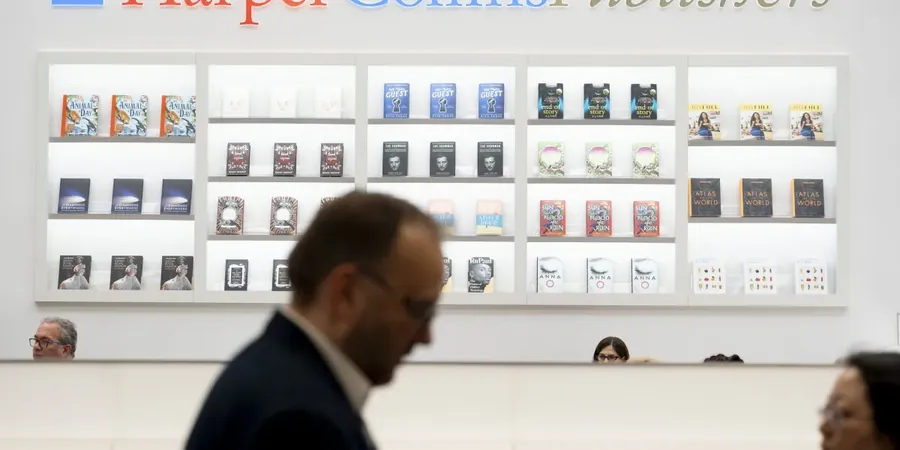
HarperCollins Partners with Tech Firm for AI Training: A Breakthrough or Threat to Authors?
2024-11-22
Author: Sophie
HarperCollins Partners with Tech Firm for AI Training: A Breakthrough or Threat to Authors?
In a groundbreaking move, HarperCollins, a leading name in the U.S. publishing industry, has signed a contract with an undisclosed tech company to utilize selected titles from its backlist for training generative AI models. This pioneering agreement has ignited discussions about the future of publishing and the ethical implications of AI technology on writers’ rights.
The financial terms of this deal include a proposed payment of $2,500 for each book selected for the training of the tech company’s large language model (LLM) over a three-year period. The significance of this arrangement lies in the immense data requirements of AI models, which rely on an extensive amount of written material to enhance their language capabilities.
HarperCollins emphasized that the scope of the agreement is “limited,” with “clear guardrails” to guarantee that author rights are respected. Furthermore, authors are given the option to either participate in this agreement or opt out entirely, providing them with a measure of control over how their work is used.
However, reactions from the writing community have been mixed. Some authors, like Daniel Kibblesmith, have openly expressed their disapproval, indicating that a substantial compensation—theoretical sums like a billion dollars—would be necessary for them to comply. This sentiment highlights a growing concern among creators regarding the ramifications of AI training on their intellectual property and livelihoods.
This agreement by HarperCollins is not an isolated incident; it follows a similar arrangement by Wiley, a scientific publisher that entered into a lucrative $23 million agreement with another unnamed large tech corporation, allowing access to its academic content for LLM training. Such deals shine a light on the ongoing tension between technology firms and the traditional publishing world, where the risk of copyright infringement looms large.
The conversation around these agreements is evolving. Giada Pistilli, an ethics expert at Hugging Face, an AI platform, views these contracts as a positive development but a step short of what is necessary. She advocates for a broader dialogue that includes not just publishers and tech companies but also authors and other stakeholders—an essential component in navigating the complex waters of copyright and AI.
Julien Chouraqui, the legal director at the French publishing union (SNE), deemed these agreements a sign of progress, symbolizing a willingness to engage and negotiate the balance between copyright compliance and the innovative use of source material in the realm of AI.
The publishing industry has recently found itself at a crossroads, with media outlets like The New York Times taking legal action against OpenAI, the creator of ChatGPT, and its major investor, Microsoft, to protect copyright amid the potential misuse of content.
As tech companies increasingly turn to existing published materials to refine their capabilities, they may indeed have no choice but to strike deals with publishers. The rapidly evolving landscape of AI training is, therefore, pushing for a reevaluation of how literary content is leveraged, bringing into focus critical issues surrounding copyright, ethics, and the future of authorship in the digital age.
As this narrative unfolds, it raises critical questions: Will authors reclaim control over their work, or will the tech giants continue to dominate the landscape with unequal power dynamics? Only time will tell as the industry grapples with this new reality. Stay tuned for updates!









 Brasil (PT)
Brasil (PT)
 Canada (EN)
Canada (EN)
 Chile (ES)
Chile (ES)
 España (ES)
España (ES)
 France (FR)
France (FR)
 Hong Kong (EN)
Hong Kong (EN)
 Italia (IT)
Italia (IT)
 日本 (JA)
日本 (JA)
 Magyarország (HU)
Magyarország (HU)
 Norge (NO)
Norge (NO)
 Polska (PL)
Polska (PL)
 Schweiz (DE)
Schweiz (DE)
 Singapore (EN)
Singapore (EN)
 Sverige (SV)
Sverige (SV)
 Suomi (FI)
Suomi (FI)
 Türkiye (TR)
Türkiye (TR)